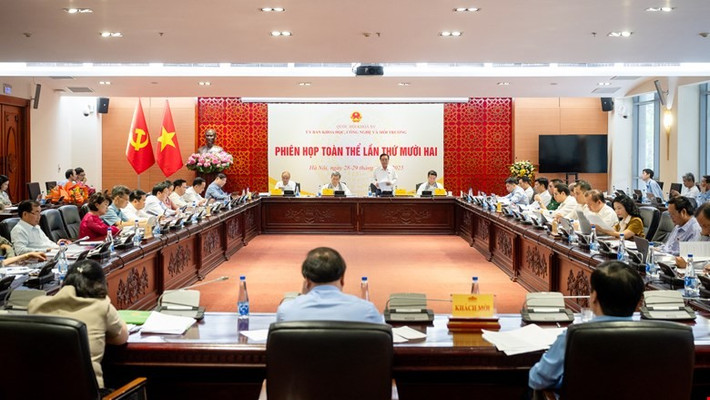
Session view
Attending the meeting were: Member of the Party Central Committee, Minister of Science and Technology Nguyen Manh Hung; Standing member and members of the Committee on Science, Technology and Environment; Standing representatives of a number of agencies of the National Assembly and representatives of relevant ministries and branches.
At this session, the Committee reviewed five draft laws: Law on Science , Technology and Innovation; Law on Atomic Energy (amended); Law on Railways (amended); Law on amending and supplementing a number of articles of the Law on Economical and Efficient Use of Energy; Law on amending and supplementing a number of articles of the Law on Product and Goods Quality.
Create motivation and open space for innovation
Speaking at the session, Vice Chairman of the National Assembly Le Minh Hoan emphasized: The five draft laws that the Committee is examining this time are all directly related, creating a foundation for the development of science, technology, transportation and environment in the coming time.
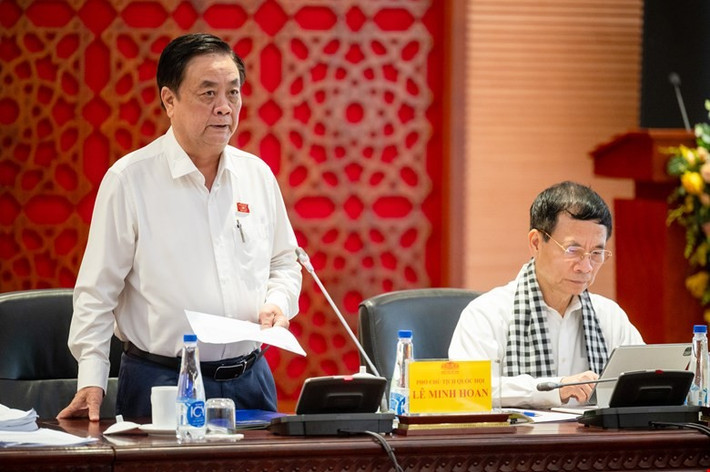
The Vice Chairman of the National Assembly suggested that delegates take the time to conduct in-depth research and give frank comments on the contents with different opinions and new issues arising in practice for discussion before the National Assembly; ensuring the feasibility of the draft Law in the spirit of Resolution No. 57-NQ/TW of the Politburo on breakthroughs in science and technology development, innovation and national digital transformation.
According to Resolution No. 57-NQ/TW, science, technology, innovation and digital transformation are key driving forces for the country's rapid and sustainable development. Therefore, in the process of commenting and perfecting the draft Law, it is necessary to reflect the spirit of Resolution 57-NQ/TW, integrating new contents, so that the law is not only a legal framework but also a basis for creating motivation and open space for innovation, creating new driving forces for the country's growth.
The Vice Chairman of the National Assembly also noted that it is necessary to closely follow the approach to drafting the law according to the viewpoint of General Secretary To Lam and Chairman of the National Assembly Tran Thanh Man, which is to create development space, not to let the law become a barrier, to bind creative ideas and technological advances.
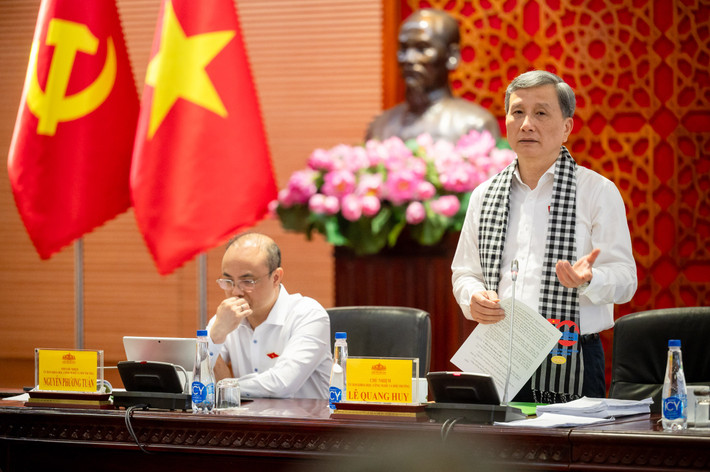
Chairman of the Committee on Science, Technology and Environment Le Quang Huy speaks at the meeting
Reducing administrative procedures, comprehensive digital transformation in management and scientific activities
Presenting the Draft Law on Science, Technology and Innovation, Deputy Minister of Science and Technology Bui The Duy said that the draft Law consists of 8 chapters and 83 articles (2 articles more than the 2013 Law on Science and Technology due to the addition of innovation content and restructuring of the Law, so in terms of form there are many changes compared to the current Law.
This Law applies to organizations and individuals engaged in science, technology and innovation activities in Vietnam or outside the territory of Vietnam, but have rights and obligations according to Vietnamese law and international treaties to which Vietnam is a member.
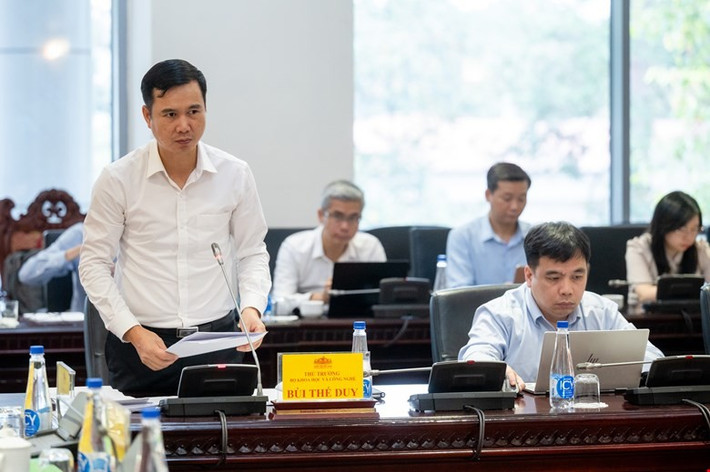
The draft Law on Science, Technology and Innovation has closely followed the policy contents in Resolution 118/NQ-CP dated August 3, 2024 of the Government on the thematic meeting on law making in July 2024 (and reported to the National Assembly Standing Committee).
Specifically, innovating research, development and innovation activities, state management of science, technology and innovation; developing science and technology potential; attracting investment, facilitating the use of budget for science, technology and innovation; promoting science, technology and innovation activities in enterprises and developing the science, technology and innovation market; enhancing the dissemination of scientific and technological knowledge.
In order to promptly institutionalize the tasks and solutions in Resolution No. 57-NQ/TW, the draft Law on Science, Technology and Innovation has added policy 6 related to the legal corridor for creative start-up activities.
The draft Law is designed based on the principles of reducing administrative procedures, strengthening post-auditing, and comprehensive digital transformation in the management and operation of science, technology, and innovation. Changing management thinking towards effective management, not process management. Attracting non-state budget investment sources for science and technology by encouraging businesses to invest and provide funding for scientific research and technology development. Maximizing the inheritance of the contents of the 2013 Law on Science and Technology, which has been effectively implemented in the past, in line with the current requirements for science, technology, and innovation development.

On behalf of the examining body, the member who is a full-time member of the National Assembly at the Committee for Science, Technology and Environment, Nguyen Thi Kim Anh, said that the content of the draft Law has demonstrated a high determination in creating institutions to make breakthroughs in the development of science, technology and innovation with all 6 policy groups stated in Submission No. 262/TTr-CP. The Committee for Science, Technology and Environment basically agrees with the viewpoint on the construction of the Law stated in the draft Law dossier.
The Standing Committee of the Science, Technology and Environment Committee suggested that the drafting agency should more closely follow and fully institutionalize the spirit of Resolution No. 57-NQ/TW, which emphasizes that the development of science, technology and innovation is the main driving force to rapidly develop modern productive forces, perfect production relations, innovate national governance methods, promote socio-economic development, and bring the country to breakthrough development and prosperity in the new era; eliminate all ideas, concepts and barriers that are hindering development, especially promoting the development of human resources, infrastructure, data and strategic technology, developing research institutes and universities into strong research entities, closely combining research, application and training.
Continue to adhere to the spirit of innovative thinking in law-making, accordingly, regulations must be concise and clear, focusing on decentralization, delegation of power, and simplification of administrative procedures; only regulate issues under the authority of the National Assembly; for specific issues that are still in the process of being mobilized and not yet stable, only the framework must be regulated and the Government must be assigned to regulate in detail, ensuring flexibility in direction, administration, and implementation, promptly meeting practical requirements.
The Standing Committee of the Committee also proposed that it is necessary to institutionalize the Party's policy on the role of enterprises and the private economy in the socialist-oriented market economy, in which the private economy is the leading driving force for growth and innovation; create a breakthrough mechanism for enterprises to play a leading role in research and development (R&D), innovation and commercialization of research results; promote organic cooperation between schools, institutes, enterprises and management agencies in research and application activities.
Along with that, it is necessary to ensure the consistency and unity of the legal system, improve the feasibility of the Law to speed up the implementation immediately after the Law comes into effect; resolutely abandon the mindset of "if it cannot be managed, then ban it", "manage any content" or "manage without knowing".
Increasing autonomy for research organizations
Discussing this content, delegates basically agreed with the necessity of issuing the draft Law and proposed to continue reviewing and institutionalizing Resolution No. 57-NQ/TW, especially the contents on supporting domestic technology enterprises to invest abroad; reforming the financial management mechanism in performing scientific, technological, innovation and digital transformation tasks; maximally simplifying administrative procedures; granting autonomy in using funds for scientific research and technology development...
There are suggestions that there should be regulations on appropriate financial mechanisms for key scientific and technological organizations that are invested in performing strategic roles in developing science and technology, especially high-tech industries for the country and localities, instead of applying common financial mechanisms like other types of public service units providing public services; increasing autonomy for research organizations, accepting risks in research to create flexible mechanisms, adapt quickly, and keep up with the development of technology in the world.
Delegates also contributed opinions on the contents of the Science, Technology and Innovation Development Fund; the allocation and spending mechanism for science, technology and innovation; assignment of state management responsibilities for science, technology and innovation; granting autonomy to research organizations, accepting risks in research and evaluating the final effectiveness of research...
Concluding the meeting, Chairman of the Committee for Science, Technology and Environment Le Quang Huy highly appreciated the efforts of the drafting agency in absorbing many opinions from the preliminary examination, completing the draft Law dossier, ensuring the basic documents and content according to regulations. The draft Law dossier is qualified to be submitted to the National Assembly at the upcoming Ninth Session according to the one-session process.
Regarding the necessity of promulgating the Law, the Chairman of the Committee on Science, Technology and Environment stated that the Committee highly agrees with the Government's Submission, the promulgation of the Law aims to fully institutionalize the spirit of Resolution 57-NQ/TW and the Party's major policies, overcome the shortcomings of current laws, and at the same time create a legal corridor to promote science, technology and innovation to become the main driving force of socio-economic development in the new period.
Chairman of the Committee on Science, Technology and Environment Le Quang Huy requested the drafting agency to seriously absorb and fully explain the review opinions and continue to supplement necessary information to serve the National Assembly deputies' discussion at the Ninth Session.
Source: https://daibieunhandan.vn/pho-chu-tich-quoc-hoi-le-minh-hoan-du-phien-hop-toan-the-thu-12-uy-ban-khoa-hoc-cong-nghe-va-moi-truong-post411733.html






![[Photo] Many young people patiently lined up under the hot sun to receive a special supplement from Nhan Dan Newspaper.](https://vphoto.vietnam.vn/thumb/1200x675/vietnam/resource/IMAGE/2025/5/18/6f19d322f9364f0ebb6fbfe9377842d3)
![[Photo] Ready for the top competitions of Vietnamese table tennis](https://vphoto.vietnam.vn/thumb/1200x675/vietnam/resource/IMAGE/2025/5/18/9c547c497c5a4ade8f98c8e7d44f5a41)



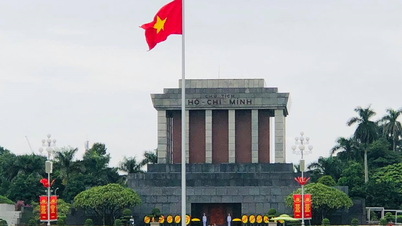

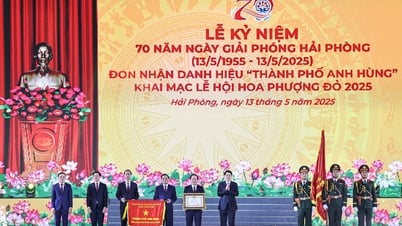













![[Photo] General Secretary To Lam visits exhibition of achievements in private economic development](https://vphoto.vietnam.vn/thumb/1200x675/vietnam/resource/IMAGE/2025/5/18/1809dc545f214a86911fe2d2d0fde2e8)













































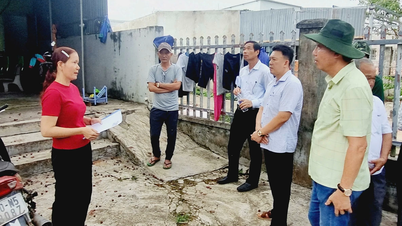



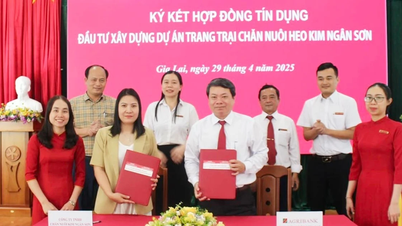


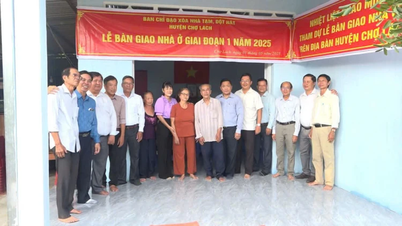












Comment (0)